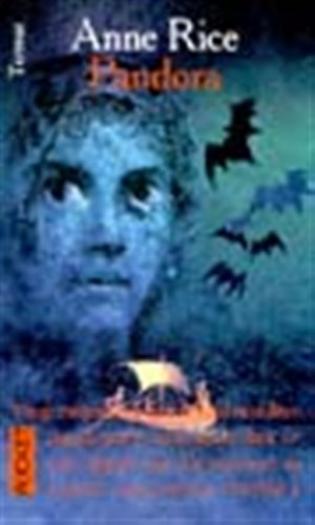
Pandora gets her sexy initiation into the vampire realm at the fangs of handsome Marius (who later inducted the famous Lestat, but that's another story told in The Complete Vampire Chronicles). Pandora tells the whole 2,000-year story that leads her from Rome to modern Paris, yet the emphasis is not really on bloodsucking adventure. Despite her acclaimed return to writing vampire chronicles, Rice devotes most of Pandora to an exploration of the sights and sounds and philosophical and religious bloodlettings of the classical world. This book has more in common with Robert Graves' sublime I, Claudius than with Rice's previous books.
Yet Pandora is a logical extension of Rice's work, and Pandora is a combination of her famous (mostly male) vampire heroes of the past and the nakedly, horrifyingly, fascinatingly autobiographical heroine of Rice's 1997 novel Violin. Now, Violin was a mess as a story, but it captured the mad, volcanic passion that erupts in Rice's best work. Pandora is really a dramatized debate between the conflicting demands of passion and reason, which Pandora terms "male reason." She keeps bashing her beloved vampire mentor: "Marius guarded his delicate rationality as a Vestal Virgin guards a sacred flame. If ever any ecstatic emotion took hold of me, he [would] tell me in no uncertain terms that it was irrational, irrational, irrational!"
But the tale is not at all weighed down by its considerable freight of argument--all of Rice's research gives fresh blood to her storytelling, and the book is a good romp. Even the chronic third-act problem Rice's books generally exhibit doesn't slow the novel down too much. Pandora has intellectual thirst as well as blood lust, and she conveys the high old time Rice obviously had steeping herself in historical lore. "It is fun to read these mad Gnostics!" exults Pandora in the early days of the Christian church. It is also fun to read this mad Pandora. In fact, Anne Rice hasn't been this fun to read in years.